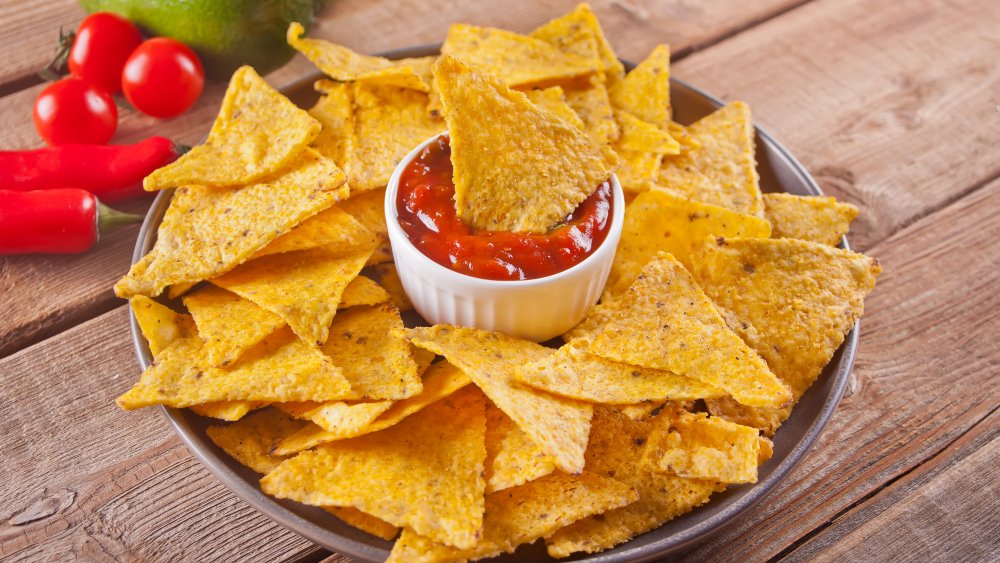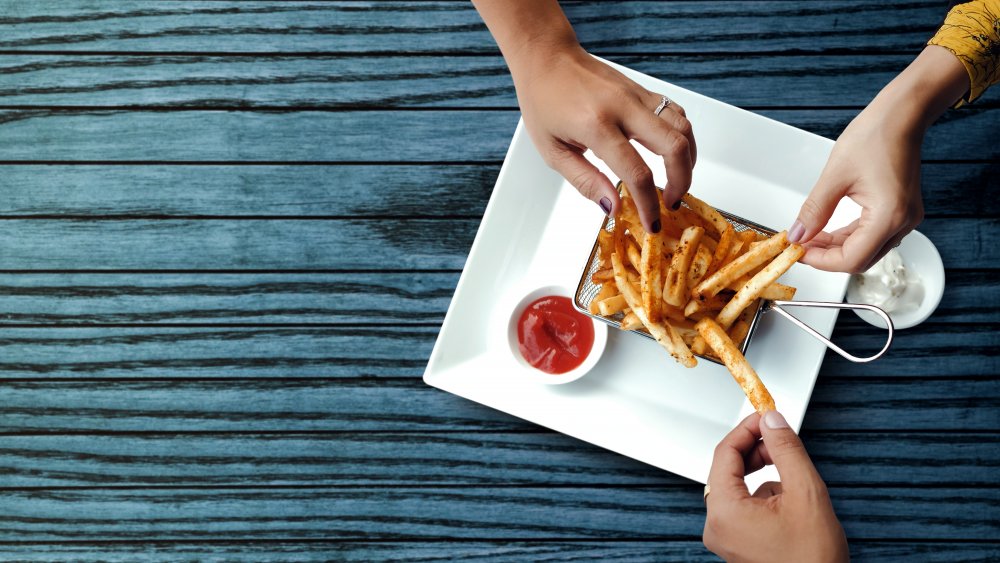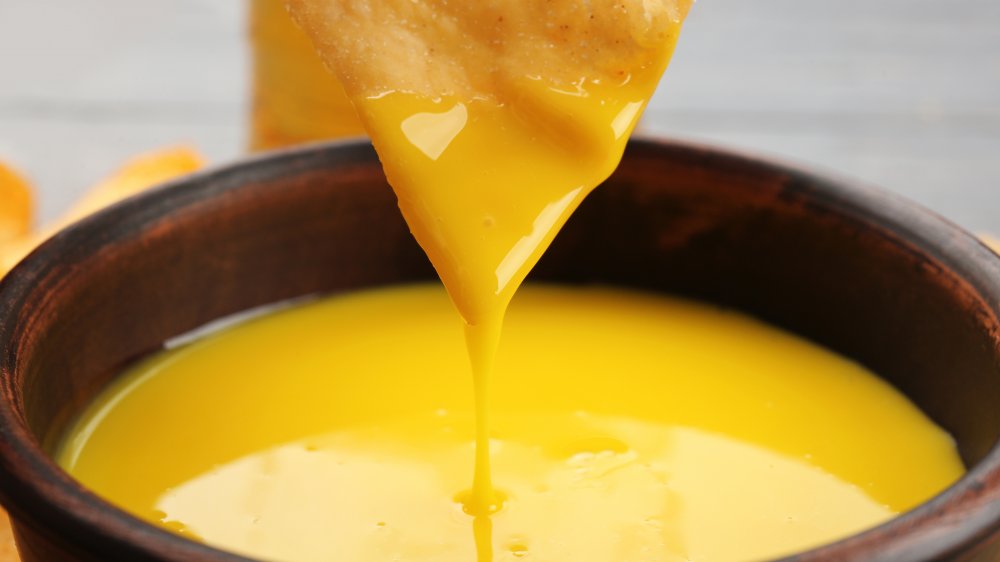Is Double Dipping Really That Bad?
Thanks to Seinfeld and George Costanza (played by Jason Alexander), everyone knows what double dipping is — you cove your chip with dip, take a bite, and then dunk the half-eaten chip in the dip a second time. Since then, the internet has (or more specifically, we have) been trying to work out whether George was unfairly vilified for going for seconds on the same chip (known as double dipping), or whether the practice is as disgusting as it actually sounds?
In an episode of Mythbusters, hosts Adam and Jamie set out to disprove the theory that double dipping would contaminate the dip. After two experiments, the team said they had found that the number of microbes found after double dipping was insignificant compared to the original microbe count found in the regular dip.
They declared that myth "busted," but what does other research say?
Research shows double dipping is pretty germy
But that wasn't the end of the story. To try and work out whether double dipping was as bad as it sounded, researchers at Clemson University actually conducted a study back in 2009, called, "Effect of biting before dipping (double-dipping) chips on the bacterial population of the dipping solution" — or in plain English: Does a dip get germy if we double dip?
The researchers found that bacterial counts in the dip did rise significantly when a person took a bite out of a chip and dunked that same chip back into dip. They also found that the bacteria count in double dipped salsa was higher than the count in double dipped chocolate or cheese sauces. Bacteria counts also rose when a chip was double dipped in sterilized water.
Double dipping could theoretically spread disease
Paul Dawson, Clemson food scientist and researcher, has an explanation for the dramatic difference between bacteria in salsa and bacteria in chocolate or cheese dips. He told CNN, "Common sense tells you that if you bite it and dip it in the salsa and more of it falls back into the bowl and doesn't stick to the chip, then there's going to be more bacteria going back in the bowl with it."
In his blog, Harvard Health's Senior Faculty Editor Robert H. Shmerling says it's important to remember that the study, which was published in the Journal of Food Safety, wasn't designed to find out if people could get sick if they consumed dip which had been double dipped by someone who was ill. But it raises the possibility that someone contagious might actually spread illness — just by double dipping a chip. We don't know this to be the case, but it may be smart to just avoid double dipping altogether — because really, it's just a pretty gross thing to do.


